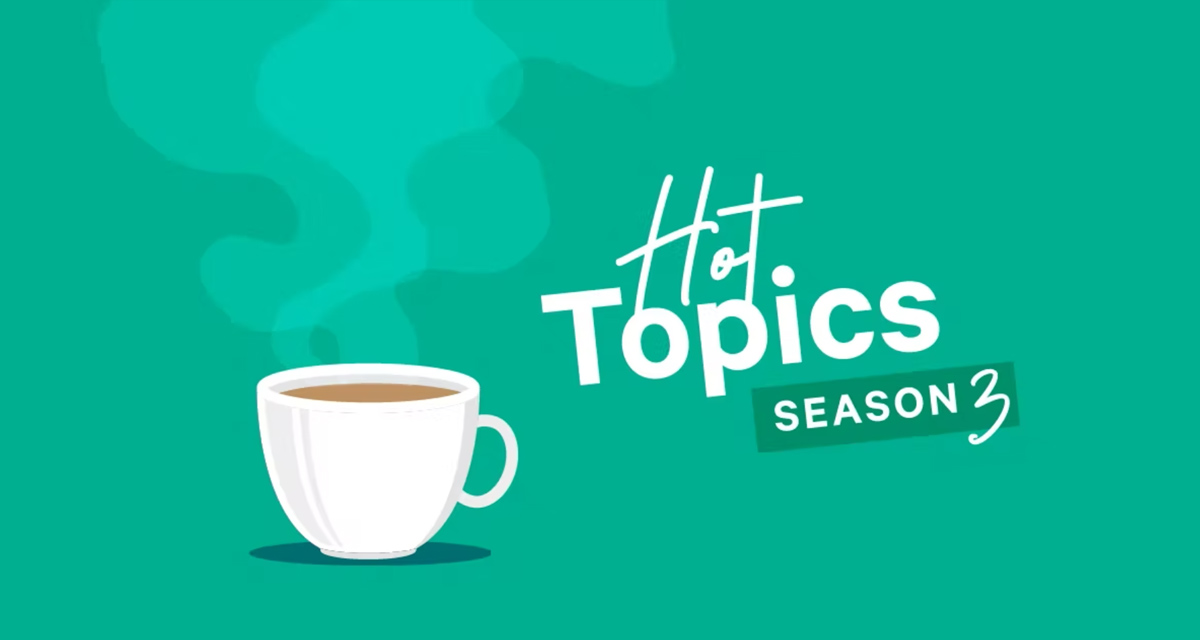The last two years have been challenging for all of us, but especially kids. Many have missed two years of socialization and their worlds have been shaken up at a critical stage of development.
According to the CDC, the rates of suicide, self-harm, anxiety, and depression are up among adolescents – a trend that began before the pandemic.
The recent upward trend has been so significant that in October of 2021, the American Academy of Pediatrics, the American Academy of Child and Adolescent Psychiatry, and the Children’s Hospital Association issued a declaration that children’s mental health had become a “national emergency.”
Naturally, we want to help kids navigate the pandemic and build skills to navigate constant change in the world. And, it’s common to wonder exactly where or how to start.
In this month’s Hot Topics Podcast, we talked with Dr. Kristen Kvamme – a psychotherapist who helps adolescents uncover what they want out of their world and learn the coping tools they need.
In our discussion, she covers common signs and symptoms that kids might need additional mental health support and what you can do to help improve their overall mental well-being.
Clip 1 – Discussion of Needs
Our Brains and Change
After two years of living through a pandemic, most of us have had to adapt to a new way of living and being. With time and repetition, our brains help us adapt by developing new neural pathways. When we make sudden and significant changes, like going back to school, it can feel like a big shock to our nervous system.
Hear from Dr. Kristen Kvamme, as she explains what it feels like for kids to go back to school and how we can help them rebuild pathways:
Clip 2 – Our Brains and Change
That’s right. There is no official manual for helping kids shift back into new routines.
The good news is – there are a few things we can look for when assessing how kids are doing in their new routine. Ask yourself:
- Are they beginning to rebuild their social systems?
- Are they doing well in school?
- Are they spending time with friends?
- Are they worrying so much they are having difficulty functioning?
- Are they experiencing sudden bursts of fear?
- Are they withdrawing from routine activities?
- Are they able to talk about the future? Do they have ideas for what they want to do next week, next month, or next year?
If you notice struggles in these areas lasting more than a few weeks –it may be time to seek professional help. Talk with your pediatrician or family doctor if you have any concerns or need help finding a mental health professional. School counselors can also be a helpful resource.
The Power of Connection
Engaging in frequent check-ins normalizes conversation and builds trust in relationships. When we take focused time to engage in their world and make space to be vulnerable, kids feel safe approaching us in more challenging future conversations.
Opening a dialogue with children about how they are feeling and listening without judgment is critical. Dr. Kvamme recommends trying using a number scale when checking in. Start by asking, “How are you feeling on a scale of 1-10 today?” If they reply, “5” ask them, “What makes today a 5 for you?” Try not to judge their response – simply listen.
Finish with curiosity. Ask them, “What would you need to make it a 6 or a 7?”
Admittedly, kids aren’t always easy to connect with. If you’re struggling, Dr. Kvamme also has a few creative ideas for how to get the conversation started:
Clip 3 – The Power of Connection
3 Creative Ways to Connect:
- Get involved in what they are interested in. Listen to their favorite music or watch shows they like.
- Ask about their friends and how they are doing.
- Sometimes it’s easier to be vulnerable when we don’t have to make eye-to-eye contact. Try going for a drive, taking a walk, or even doing a puzzle together.
By taking the time to create connection you can get a view of what a kid’s world is like and where they are at – not by judging the things they engage with, but by being interested in them.
Connecting in the Digital World
Kids (and adults!) are on their phones a lot, and the pandemic has not helped this trend. This time spent engaging in the digital world is not the same as being present in the physical world.
During this critical time when brains are rapidly growing and changing, technology impacts attention spans, decreasing the ability to problem solve and engage.
Clip 4 – Brain Development and Screens
As adults, we can encourage activities that will create new neuropathways. Think of fun ways to get outside, get together with friends, and get off screens.
Ready to give it a try? A practical tip from Dr. Kvamme – instead of saying, “Get off your device” try a specific request, “let’s go do this.”
Mental Health Impacts the Whole Family
When someone in your family is struggling, it impacts the whole family. As important as it is to guide them towards the help they need, it’s equally crucial to take care of yourself. Self-care can include anything that brings you joy, provides relaxation or gives your nervous system a break. Ask yourself, “what do I need today?”
Clip 5 – Mental Health Impacts the Whole Family
How to Help
What can we, as adults do every day to support mental health in kids? Focus on leading by example. Reduce your phone use, reach out to connect with others, and prioritize your mental health too.
If you need extra help getting kids the mental health support they need, here are a few tips:
- Therapists have waiting lists. Don’t get discouraged. Call and get on a waitlist or even a few.
- You may find shorter waitlists with therapists who do not take insurance. Check if you have out-of-network benefits on your insurance. If they do, ask your therapist for a “Super Bill” and submit to your insurance for reimbursement.
- For additional resources, visit NAMI.org:
About our Hosts
Carrie Hopperstad is Sr. Producer of Content & Media Labs at Aduro. She is the host of Hot Topics Mental Health Edition podcast which is available in Aduro Connect.
Dr. Kristen Kvamme is a psychotherapist located in Kirkland, WA. She helps adolescents uncover what they want out of their world and learn the coping tools they need. Visit her website to learn more.


